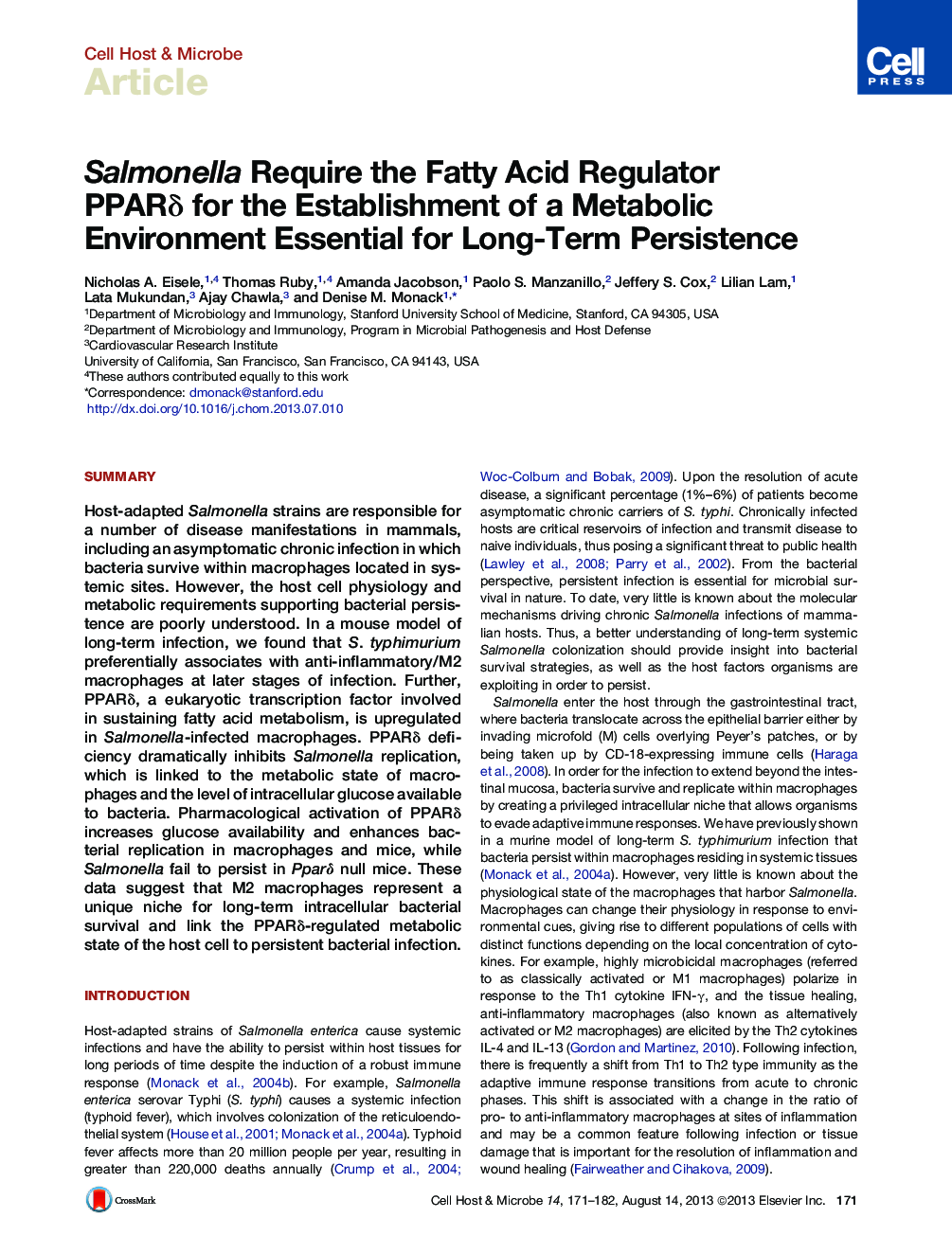| کد مقاله | کد نشریه | سال انتشار | مقاله انگلیسی | نسخه تمام متن |
|---|---|---|---|---|
| 4361043 | 1301345 | 2013 | 12 صفحه PDF | دانلود رایگان |

• Salmonella requires the fatty acid nuclear receptor PPARδ for intracellular survival
• PPARδ increases glucose availability needed for Salmonella replication
• PPARδ is critical for long-term survival of Salmonella in mice
• Pathogen carriage can be influenced by the host metabolic state
SummaryHost-adapted Salmonella strains are responsible for a number of disease manifestations in mammals, including an asymptomatic chronic infection in which bacteria survive within macrophages located in systemic sites. However, the host cell physiology and metabolic requirements supporting bacterial persistence are poorly understood. In a mouse model of long-term infection, we found that S. typhimurium preferentially associates with anti-inflammatory/M2 macrophages at later stages of infection. Further, PPARδ, a eukaryotic transcription factor involved in sustaining fatty acid metabolism, is upregulated in Salmonella-infected macrophages. PPARδ deficiency dramatically inhibits Salmonella replication, which is linked to the metabolic state of macrophages and the level of intracellular glucose available to bacteria. Pharmacological activation of PPARδ increases glucose availability and enhances bacterial replication in macrophages and mice, while Salmonella fail to persist in Pparδ null mice. These data suggest that M2 macrophages represent a unique niche for long-term intracellular bacterial survival and link the PPARδ-regulated metabolic state of the host cell to persistent bacterial infection.
Journal: - Volume 14, Issue 2, 14 August 2013, Pages 171–182